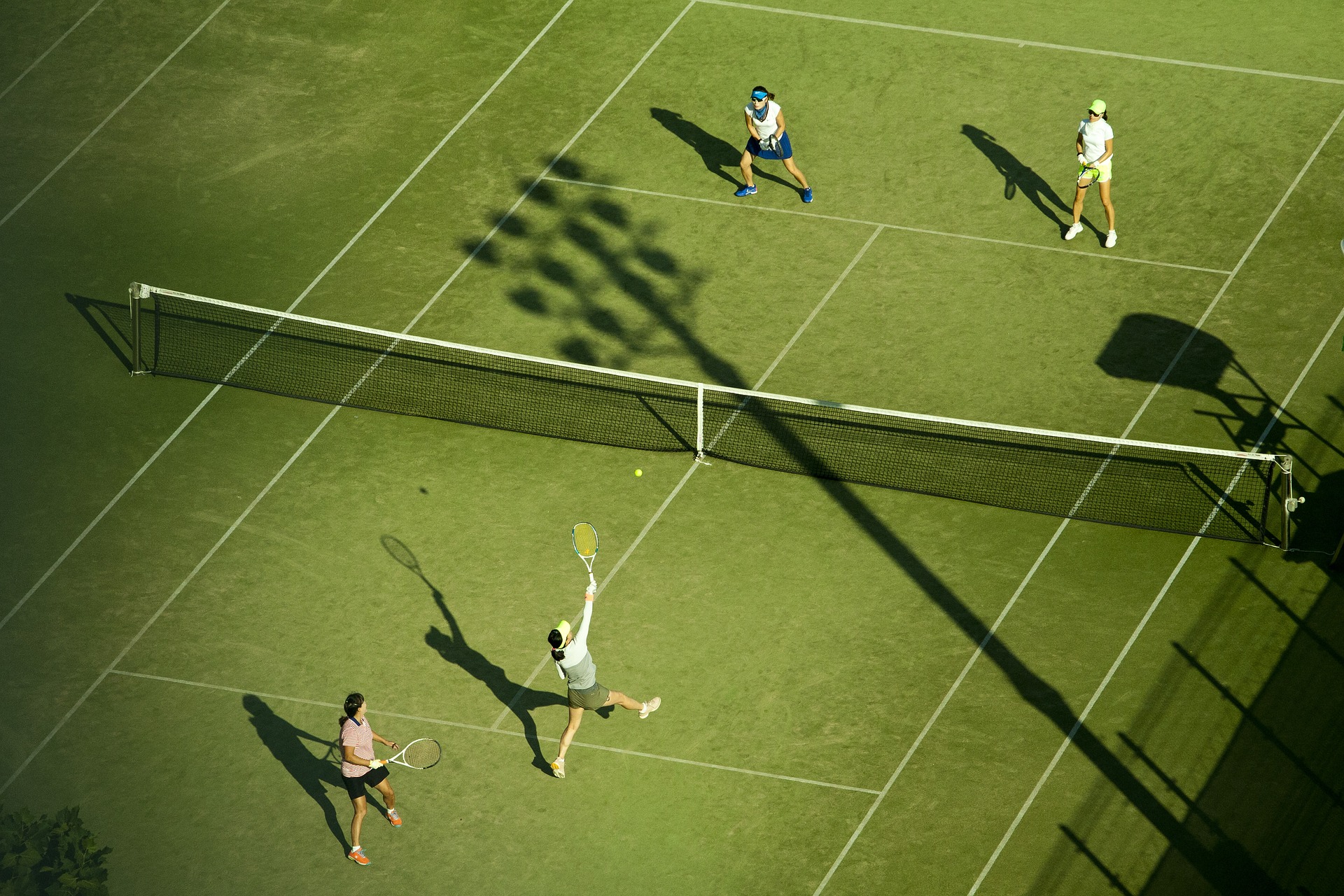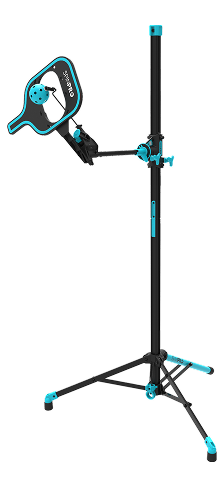 Credit: pixabay.com
Credit: pixabay.com
What we'll cover in this article:
Stay in the loop!
Want to be updated when we publish? Be sure to sign up for our newsletter. No spam, we promise!
Tennis is not for the faint-hearted. It’s one of the toughest sports in the world. As an individual, you are fully exposed out there on the court, even when playing doubles. No other teammates are coming to back you up or give you a breather. It’s all about you and how you perform at the moment. But it is why tennis offers unique life lessons that other sports can’t. Here are 10 life lessons that it can teach you:
10 Life Lessons From Tennis
1. Dealing With Failure

Failure is tough, but the more you face it, the easier it becomes to stomach. Tennis is a game built on mistakes. In fact, the majority of points both won and lost in a match are through error. Most players will lose as many matches as they win, maybe more. Coping with and accepting failure on the court can help you handle the emotional pressure of failure off the court. You will emerge stronger.
2. Never Giving Up
Being a great tennis player is like being great at anything. It's not about being a genius or a once-in-a-generation athlete. It's about not quitting. The best players in the world are not the strongest, fastest, or most intelligent. They have a great combination of all those things, but most of all, they know they have to ride the storm and be mentally tough. Some big waves may come, but they will make it to the other side if they stay steady and never stop. Sometimes you'll come out on top simply because you refused to give up.
Novak Djokovic is known for his mental toughness. He simply refuses to give up. Here are some of his best comebacks:
3. Giving Your Best
If you accept that failure is possible and have the mentality never to give up, you can truly "give it your best." Even if you have a bad day or don’t feel great, you can still try your best at that moment with the resources you have available. Losing is always disappointing, but knowing you have given it your all, you can sit more comfortably with defeat, whether it's on a tennis court or the campaign trail.
4. Being Dedicated
In sports and life, the more you dedicate yourself, the more effort you put in, and the more likely you are to improve, achieve your goals, and feel fulfilled. Learning this life skill is crucial to surviving as a successful human in the modern world. Bringing a fierce resolve and committing fully daily will provide a sense of purpose for tennis and your career.
5. Building Self Awareness
To become a great tennis player, you must continually analyze your strengths and weaknesses. You must adjust and evolve your game during matches and in practice. It would help if you had an awareness of your emotions and thought patterns, as well as your technique and tactics. You can learn so much about yourself on the tennis court. Understanding how you react to certain situations and capitalize on others can be transferred to every other area of your life.
6. Developing Mental Adaptability
We already know that mental toughness, fortitude, and emotional maturity develop as a player. Another huge component is mental adaptability. You have to deal with the ever-changing emotional highs and lows of a match and adjust to changing tactical situations and the scoreline. The ability to adapt will help you exploit your enemy's weaknesses, emphasize your strengths and give you control over your mental state. Essential skills for the game of life.

7. Accepting Responsibility
The truth is you are on your own out there on the court. There are no team members to blame, and you shoulder the responsibility for the outcome. There will be times when you feel very alone and times on the court when you want it to swallow you up. Sometimes it works, sometimes it doesn't but being responsible for what happens through the choices they make is what leaders do. They are willing to stand up and say, "I am accountable." Great businesses go to great lengths to find these sorts of people.
8. Having Gratitude
The people who have the most success both on and off the court are people who derive genuine joy from their journey. You will lose many matches that would have been thoroughly enjoyable to play, and that’s ok. We often get caught up in winning and losing and forget why we started. Recognizing that we are in a lucky position to have tennis as a pastime is something we can spread across our entire life. Being grateful for what you have goes a long way to creating happiness throughout your life.
9. Controlling Emotions
The demanding nature of tennis requires competitive excellence. Along with this comes an inevitable emotional rollercoaster. To excel in tennis and life requires developing and growing your character to deal with adversity. You will meet so much of it both on and off the court - tennis, like life, can be very unfair. Learning to control your emotions rather than having them control you will allow you to reserve your energy for other important tasks.
Below is an excellent post from Patrick Mouratoglou highlighting how much you can show someone about yourself on the court!
10. Dealing With Pressure
Without pressure, there is no opportunity. Dealing with the pressure of a tennis match is excellent training for dealing with the pressure of life. Feeling that pressure and accepting it as a privilege and a chance to overcome a difficult situation is a fantastic way for tennis to help you succeed in life. Soak up that pressure.
BONUS: Tennis players live longer
Not only does tennis help your personal growth, it also has a number of physical and mental health benefits. A recent study from Denmark, published by Peter Schnohr and colleagues, showed that the exercise, decision-making, and social interaction of playing tennis extended life by nearly ten years. So next time you step on the court you can feel good about keeping your body and mind younger.
TOPSPINPRO BEGINNER COURSES
We use the latest neuroscience in our TopspinPro Online Courses. Check them out for some in depth help with developing your shots:
In Summary
“Strength does not come from winning. Your struggles develop your strengths. When you go through hardships and decide not to surrender, that is strength.”
― Arnold Schwartzenegger
Many people see failure as the opposite of success, but in fact, failure can be a success. How often have you evaluated in repetitive, mind-numbing detail the matches that you have won? For most people, it's rarely or never. When we lose, we often think about what we could have done differently and how the outcome would have changed if we had. We learn and grow. That is success.
As Arnold said, your struggles develop your strengths. It is when you go through hardships and setbacks but decide to continue and move on that you become stronger. So being successful has nothing much to do with winning but is about how you manage to bounce back and not give up when you fall. It's also about keeping a healthy body and mind and making the most of every situation that you have been handed. Using your "life lessons" to your benefit will ensure you keep getting stronger. Tennis not only offers you so many life lessons, but it helps keep you mentally and physically strong for the journey. Who needs all those self-help books when all you have to do is step on the court!!
Let us know if you have had any experiences with tennis teaching you any of these 10 life lessons in the comments below.
FAQs
-
What unique life lessons does tennis offer according to the content?
Tennis offers unique life lessons such as dealing with failure, never giving up, giving your best, being dedicated, building self-awareness, developing mental adaptability, accepting responsibility, having gratitude, controlling emotions, and dealing with pressure.
-
How does tennis help in dealing with failure?
Tennis teaches you to cope with and accept failure, as it’s a game built on mistakes. This helps you handle the emotional pressure of failure off the court, making you stronger.
-
What is the importance of mental toughness in tennis?
Mental toughness is crucial in tennis as it helps you ride through the challenges and stay steady. Players like Novak Djokovic exemplify this by refusing to give up, showcasing the importance of perseverance.
-
How does playing tennis contribute to your physical and mental health?
Tennis offers numerous physical and mental health benefits, including extending life by nearly ten years, according to a study from Denmark. It combines exercise, decision-making, and social interaction to keep both your body and mind younger.
-
How does tennis help in developing self-awareness?
Tennis requires you to continually analyze your strengths and weaknesses, both emotionally and technically. This self-awareness on the court can be transferred to other areas of your life, helping you understand and improve yourself.
Links Related to This Article
Enjoyed this article?
Be sure to sign up for our newsletter and we'll keep you up to date about new posts





1 comment
Thank you for this! This gives me inspiration to get into the arena and take it on the chin!